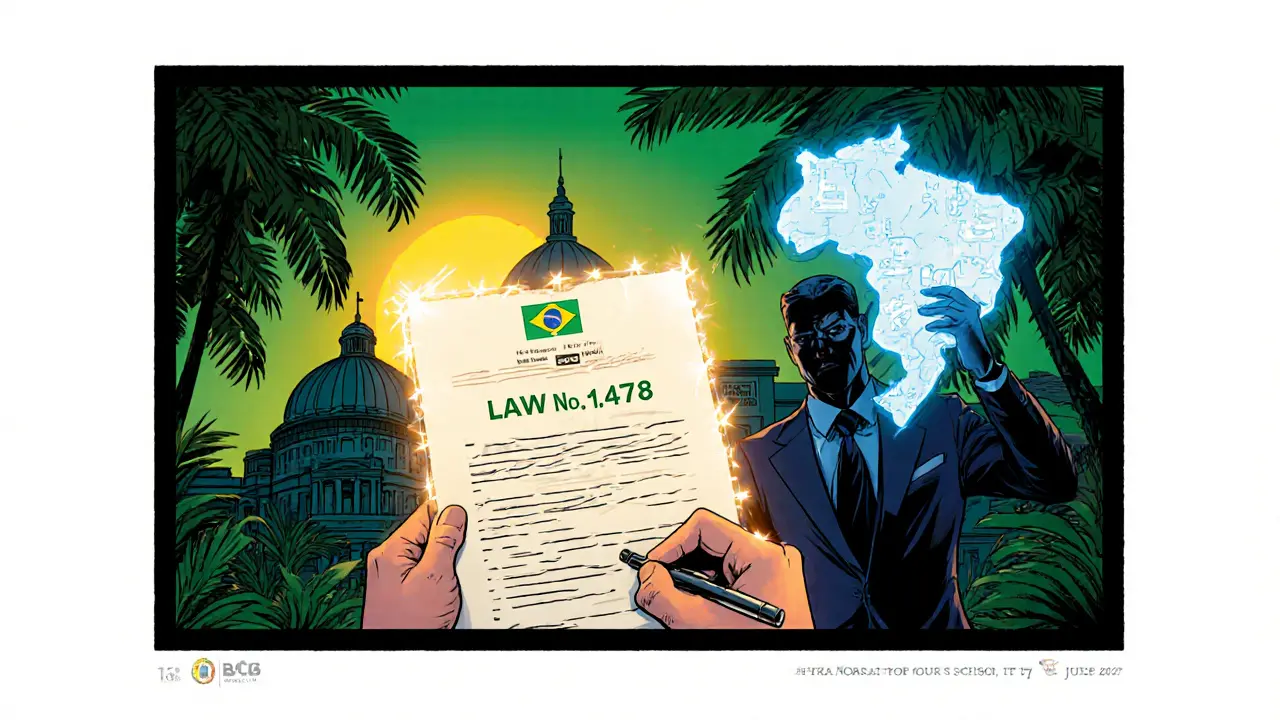Brazil's Crypto Regulations & Consumer Protection Laws Explained
A clear guide to Brazil's cryptocurrency regulations, licensing, stablecoin rules, and consumer protection measures, plus practical steps for businesses.
Continue ReadingWhen talking about Central Bank Brazil crypto, the set of projects and policies the Brazilian central bank uses to explore digital currencies and crypto assets. Also known as Banco Central do Brasil crypto initiatives, it sits at the crossroads of finance and technology. Central Bank Digital Currency (CBDC), a state‑backed digital version of the national currency is the flagship of this effort, while Digital Real, a tokenized form of the Brazilian real built on blockchain represents the concrete product under trial. The broader crypto regulation, rules governing crypto activities, tax, and compliance in Brazil shapes how these tools can be used by banks, firms, and everyday users.
Brazil aims to launch a full‑scale CBDC by 2026, and the pilot phase already shows how a digital real can cut transaction costs and boost financial inclusion. The central bank’s test network runs on a permissioned blockchain that guarantees fast settlement and real‑time monitoring. Central Bank Brazil crypto projects require robust identity verification, which ties into the nation’s AML framework. This means the CBDC isn’t just a tech demo—it’s a policy tool that could reshape how people pay for groceries, send remittances, or access government benefits.
One key attribute of the Digital Real is interoperability. It’s designed to work alongside existing payment rails like PIX, Brazil’s instant payment system, so merchants can accept both traditional and digital tokens without changing their back‑end. The pilot also highlights that the token’s supply is fully controllable by the central bank, allowing quick responses to inflation or liquidity shocks. For developers, this opens a window to build DeFi‑style services that still obey regulatory oversight.
Regulation plays a starring role. In 2024 Brazil introduced the “Crypto Law,” which clarifies tax treatment for crypto gains and sets licensing requirements for exchanges. The law also mandates that any crypto asset offering must register with the central bank, creating a clear compliance path for projects like the Digital Real. Enforcement actions in 2025, such as hefty fines on non‑compliant exchanges, underscore how seriously authorities take these rules. This regulatory clarity helps investors gauge risk and encourages legitimate innovation.
From a market perspective, the CBDC rollout affects both on‑chain and off‑chain prices. When the digital real entered the test phase, several altcoins saw price spikes in Brazilian trading pairs, driven by speculation on future liquidity. At the same time, underground premiums for crypto in restricted jurisdictions have fallen, as the official digital token offers a safe, regulated alternative. Analysts note that a mature CBDC could lower the premium gap between formal and informal crypto markets, making the overall ecosystem healthier.
For crypto exchanges operating in Brazil, the new landscape means updated compliance checklists. They must integrate know‑your‑transaction (KYT) tools, report large moves to the central bank, and adapt fee structures to compete with the near‑zero‑cost CBDC. Those that can align quickly may capture a slice of the growing user base looking for seamless crypto‑fiat bridges.
The collection of articles below dives deeper into each of these angles. You’ll find an in‑depth review of the P2B exchange fees, a guide to crypto tax avoidance versus evasion, a look at underground market premiums, and a snapshot of global CBDC projects. Whether you’re tracking regulatory updates, scouting investment opportunities, or just curious about how Brazil’s digital real will change everyday payments, the posts are packed with actionable insights.
Ready to explore the specifics? Below you’ll discover detailed analyses, step‑by‑step guides, and real‑world examples that bring Brazil’s central bank crypto initiatives to life.

A clear guide to Brazil's cryptocurrency regulations, licensing, stablecoin rules, and consumer protection measures, plus practical steps for businesses.
Continue Reading